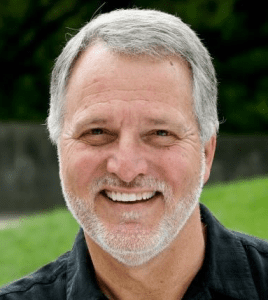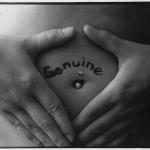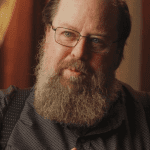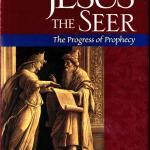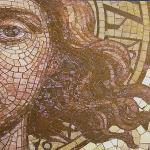David, the poet-warrior-king wrote a fascinating three act play. It is referred to as David’s “shepherd psalm,” yet it is so much more than that. Psalm 23 is a miniature drama of redemption. Here I part company with Keller’s A Shepherd Looks at Psalm 23. While Act 1 is definitely set as a shepherd/sheep scene (Ps 23:1-4), verses 5 and 6 present two entirely different scenes. The drama celebrates God in three distinct images and each image magnifies the worth of people to God. Let’s imagine we’re in the theater and the lights dim, we stop our chatter, and the curtain rises on Act 1.
ACT 1- Ps. 23:1-4: We cannot escape the scene of green pastures, still waters, straight paths, and the valley of the shadow of death. There they are. We see the sheep eating, lying down, drinking from the quiet waters, walking the “right” (safe) paths, and shivering in the danger of the dark valley of death. The readers are sheep. The LORD is the shepherd. He directs, he guides, he provides, he protects. David fought the bear and the lion to keep his sheep safe. Sheep are dependent and the shepherd is “all in” to care for them. Jesus is the ultimate “good shepherd,” “great shepherd,” and “chief shepherd.” He knows us by name and calls us out to follow him. He lays down his life to secure our everlasting well-being. The curtain closes, the lights come up, we contemplate what we witnessed.
ACT 2- Ps. 23:5: The scene changes dramatically. We see a low table lavishly spread with meat, fruit, bread and drink. We are welcomed in (to a tent or a home). We are anointed with oil and welcomed as an equal. As strangers, we feel so honored. The lanterns are burning, the wall hangings are colorful, the reclining pillows are lush. “I have prepared this table for you,” says our host. “Here you are safe even in the presence of your enemies.” We recline and eat. The host keeps filling our cup until it overflows. We’re no longer sheep, we’re guests. God is not a shepherd now, he is our host. Jesus said, “This bread is my body given for you; this cup is my blood shed for you. Eat and drink, all of you, in remembrance of me.” What a table! What a host! We contemplate the wonder of it all.
ACT 3- Ps. 23:6: The curtain rises and we’re stunned. We see the Tabernacle, known in David’s day as “the house of the LORD.” The outer court with altar and laver; the holy place with bread, candles and incense; the holy of holies with the ark of the covenant and the presence of God. We have been chased into this place not by enemies, but by God’s mercy and love. The verb translated “follow” means “pursue.” We’ve been pursued by all that is good in God. We find ourselves “dwelling,” that is, living as a family member in the house of the LORD forever. No longer vulnerable sheep, no longer temporary guests, but resident family members of God forever. “In my Father’s house are many rooms. I go to prepare one for you. I want you to be where I am forever.” God is more than a Shepherd, more than a Host. “When you pray say, ‘Our Father… .’” J. I. Packer wrote that the highest compliment to God is to call God “Father.”
Trying to squeeze verses 5 and 6 into a shepherd/sheep motif does serious injury to the striking Hebrew terms of this familiar and breath-taking song. It’s not a one act play. The Psalm is a gripping drama of redemption that is fulfilled in Jesus, the Son of David. My deepest thanks to Dr. Bruce K. Waltke for introducing me to this drama in his prayer before Hebrew class in seminary.

